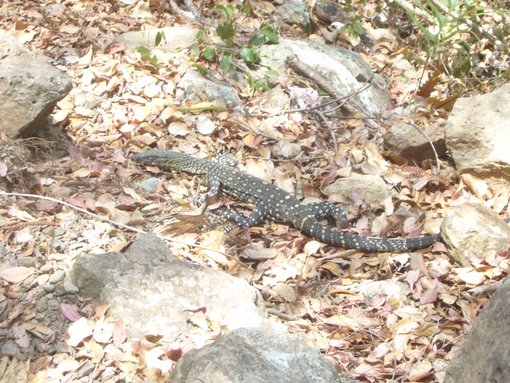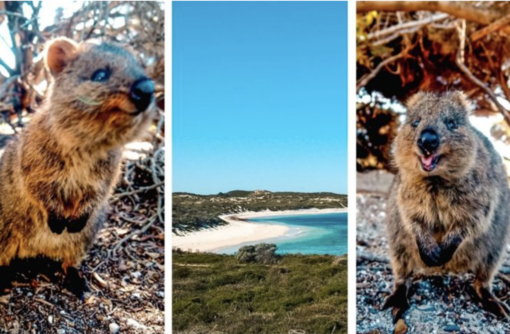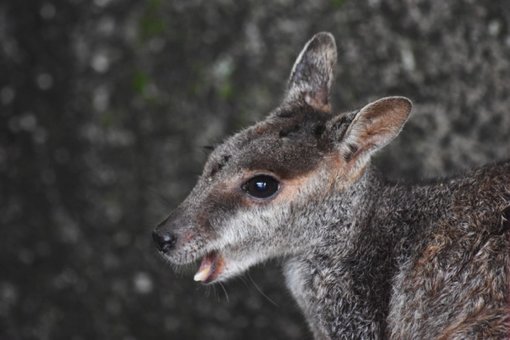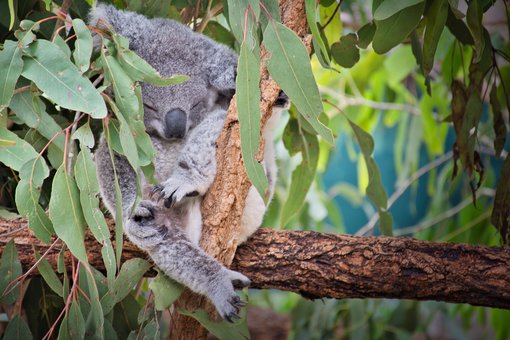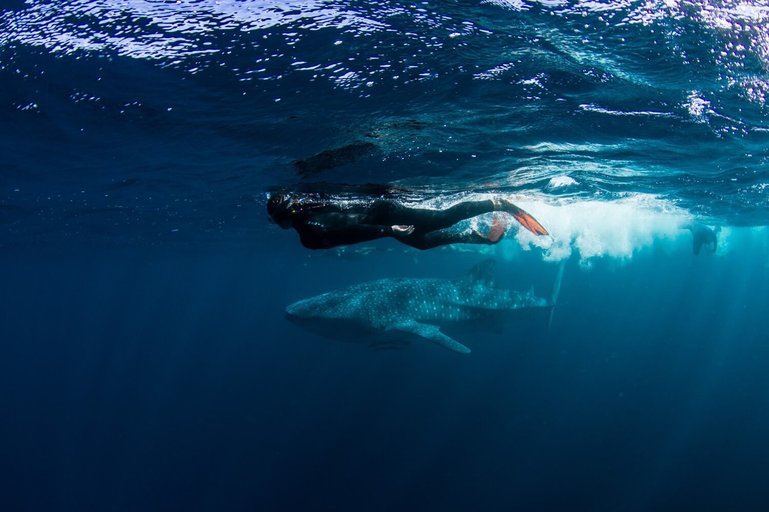
Simone and a whale shark
Experiencing wildlife in its true nature and form is something that can be the most amazing and unique experience for travellers all over the world. However, often we find that animals are exploited by tourist organizations. Zoo’s and circuses (we can’t actually believe that this is still a thing in 2019) want to generate as much income as possible, without actually caring about the animals’ wellbeing. As a tourist or visitor it’s sometimes hard to tell whether the experiences are ethically right or wrong.
Luckily, there are responsible and educational companies where you can have a respectable interaction with some of nature’s grandest creatures. For example, the Ningaloo Reef in Western Australia offers one of the most ethical experiences to swim with the largest fish in the world: the giant and humble whale sharks.
I had the opportunity to experience this myself during my time in Australia in 2016 and I would love to share my story about this. So that you too can choose the right ethical whale shark encounter from the wrong.
1. My Experience Swimming with Whale Sharks
In June 2016 I visited Exmouth, Western Australia and went out on the Ningaloo reef to experience a whale shark swim. In my opinion, the Ningaloo Reef is the best place to go on an ethical whale shark experience. A great thing about Australia is that the rules and laws around marine life are very strict. All operators have a high quality of respect for sustainability, marina life and all are carrying out ethical tours around the reef.
I went on a tour with a company called Ningaloo Discovery, and, in my opinion, they were the best. We went out sailing with a beautiful 60ft catamaran. They use spotter planes that can spot whether there are whale sharks around by seeing their beautiful silhouettes sliding through the crystal clear water. They have strict rules allowing only 10 people at the time out on the water, which is great because it feels like you are almost alone with these animals!
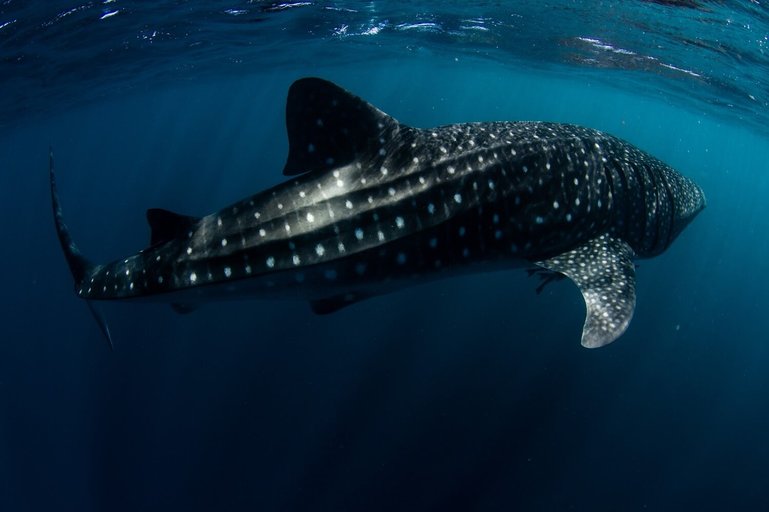
Whale shark
Before we went in the water, we were instructed to keep a minimum of 4 metres distance and to always stay behind the whale sharks. This way, the whale sharks wouldn’t be disturbed by our presence.
We had such a wonderful time spotting many different whale sharks. The tour took us to 4 different places in the water and we ended up swimming with some sharks up to even 10 meters! Floating in the water, you simply think that the whale sharks aren’t real. They almost look like a hologram, sliding so gently and effortlessly through the water. And they actually swim crazy fast, so it was a challenge to try to keep up with them. Writing this just fills me with happiness again, thinking about how lucky I got to experience whale sharks. When we got back on the boat a beautiful fresh lunch was served while we made our way back to the coast. It’s an experience I will never forget.
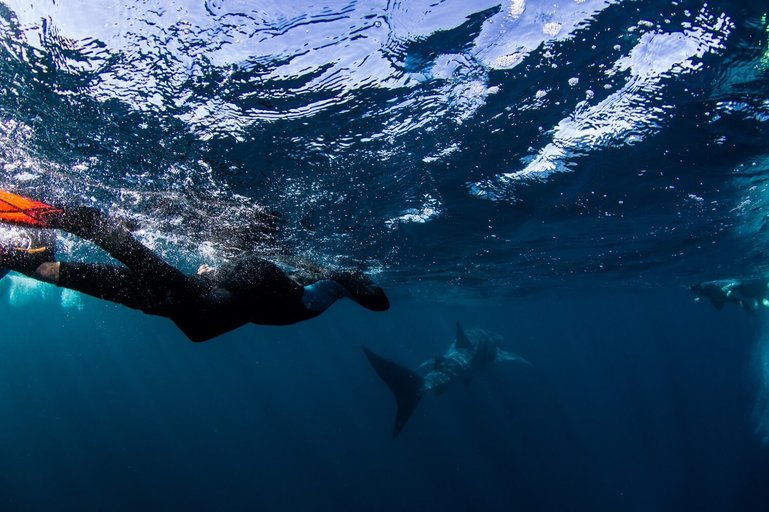
Following the whale sharks
2. What Are the Costs?
Alright, it ain’t cheap. Tours at the Ningaloo reef start from around $300,- AUD, which is roughly 185,- EUR. But, being such a special eco-experience, this is so worth it! A large part of your tour money goes toward research and protection of the whale sharks and the reef. The team of Ningaloo Discovery was very knowledgeable and provide great insight information while we were out on the reef.
3. The Gentle Giants of The Ocean
Whale sharks are the largest fish in the world and can reach lengths up to 40 feet (12 meters) and more. That’s the size of a bus; imagine that! Their back and sides are usually grey to brown coloured with beautiful white spots and small light stripes and their belly white. Despite its size and name, whale sharks do not pose any threat to humans. They are truly gentle giants.
Their favourite meal is plankton that they scoop up with their colossal mouths when getting close to the surface. They are actually quite shy and docile fish, but very fast swimmers. Whale sharks are very vulnerable, sadly in some parts of the world whale sharks are still hunted on. In 2016 it was estimated there are only about 7.100 whale sharks left in the world, making whale sharks are officially listed as endangered.
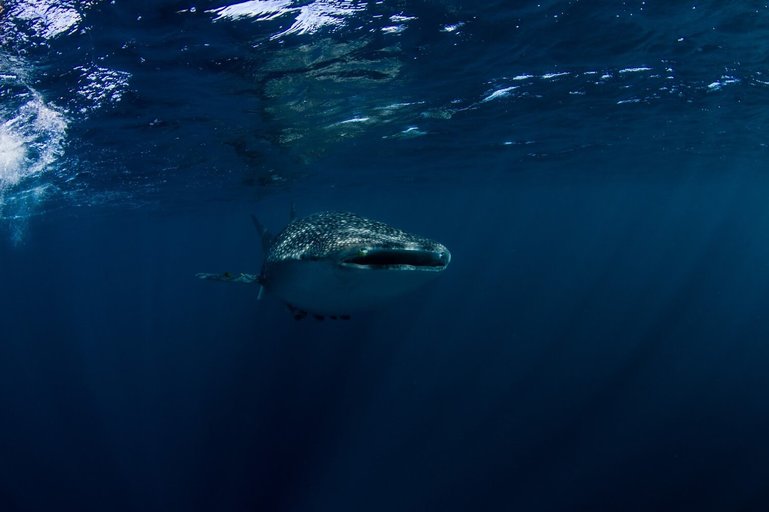
Whale shark
4. Where Can I Swim with Whale Sharks
There are various places in the world where you can swim with whale sharks such as Mafia Island in Tanzania, Isla Holbox in Mexico, Donsol in the Philippines, Triton Bay in Indonesia and as earlier mentioned the Ningaloo Reef in Western Australia. However, not all of these locations offer an ethical experience.
5. Conservaton or Exploitation?
Some countries promote whale-watching tours to help boost the local economy. Many small areas are heavily relying on tourism which is their main source of income. Interestingly enough, these countries say that ecotourism is helping to promote shark conservation around the world. Some of these countries have created protected areas and laws for the safe management of whale shark tours. A big problem with this, though, is that many countries' governments don’t always have the resources to enforce these laws. Regulation and enforcement is key. Without this, the whale sharks will be exploited and harmed.
You, as a traveller, have a responsibility as well. You are of course free to say no to operators who are not working in an ethical way. Let me tell you some tips that can help you choose and select the most ethical tour operator when you are planning to swim with whale sharks.
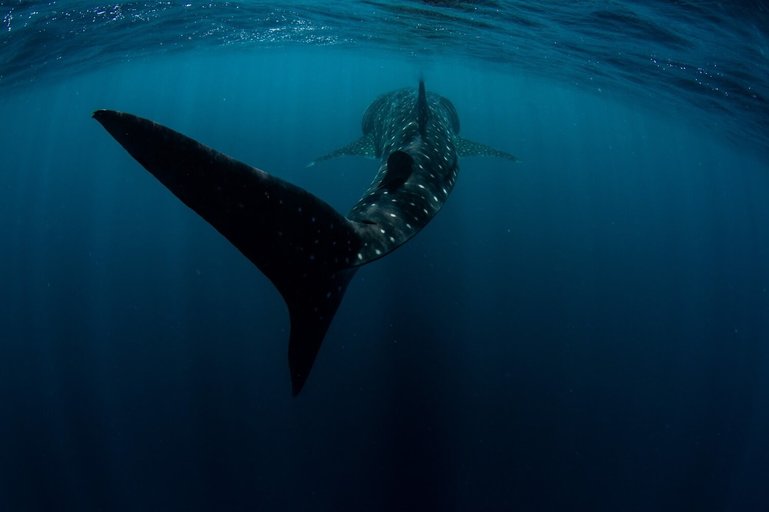
Whale shark
6. What to Look for When Booking
Try to look for sustainable tour operators that highly validate sustainability. Those are the companies you’ll want to be going with. They care deeply about protecting whale sharks, the marine life and that take people on a wonderful educational and ethical whale shark tour.
There are a few definite red flags that you should keep in mind when considering swimming with whale sharks:
Some definite RED flags:
Make Sure They Don’t Use Food as Bait
Is the area a natural home to whale sharks or are whale sharks lured here by the tour operator using food and feed the whale sharks? Using food to lure tourists is definitely an unethical way that disturbs the whale shark’s natural behaviour.
Stay Away from Scuba-Diving
Do they offer scuba diving with whale sharks? That’s a no-go! Whale sharks are naturally swimming quite close to the surface and there is absolutely no need to go i full diving gear. In fact, the use of the diving equipment (the bubbles in particular) can actually disturb the animals.
Don’t Chase Whale Sharks by Boat
Check on how the whale sharks are being spotted. The most ethical and non-harming way is by spotter plane. When whale sharks are being spotted by boats they can feel chased by the roaring blades of the boat’s engine.
Are you ready to book your whale shark tour but are you not sure whether the company is carrying out a responsible tour? Please inform yourself online, call them up or check with the local tourist information. Let’s all aim to enjoy these gentle giants while protecting them and providing them with the best life possible.
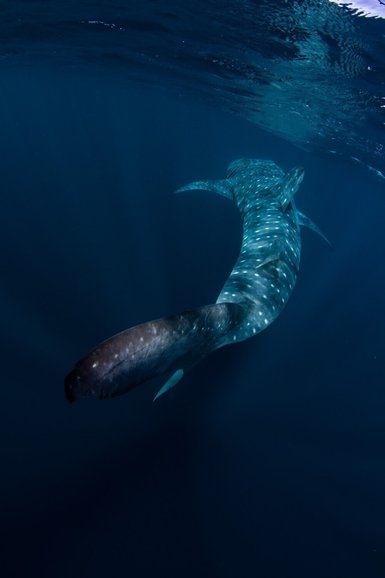
Whale shark






